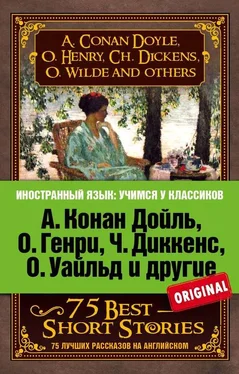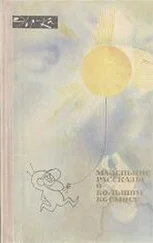The editor rose from the bench with his air of indulgence and inside information.
‘Say, Westbrook,’ said Dawe, pinning him by the lapel, ‘would you have accepted “The Alarum of the Soul” if you had believed that the actions and words of the characters were true to life in the parts of the story that we discussed?’
‘It is very likely that I would, if I believed that way,’ said the editor. ‘But I have explained to you that I do not.’
‘If I could prove to you that I am right?’
‘I’m sorry, Shack, but I’m afraid I haven’t time to argue any further just now.’
‘I don’t want to argue,’ said Dawe. ‘I want to demonstrate to you from life itself that my view is the correct one.’
‘How could you do that?’ asked Westbrook, in a surprised tone.
‘Listen,’ said the writer, seriously. ‘I have thought of a way. It is important to me that my theory of true-to-life fiction be recognized as correct by the magazines. I’ve fought for it for three years, and I’m down to my last dollar, with two months’ rent due.’
‘I have applied the opposite of your theory,’ said the editor, ‘in selecting the fiction for the Minerva Magazine . The circulation has gone up from ninety thousand to—’
‘Four hundred thousand,’ said Dawe. ‘Whereas it should have been boosted to a million.’
‘You said something to me just now about demonstrating your pet theory.’
‘I will. If you’ll give me about half an hour of your time I’ll prove to you that I am right. I’ll prove it by Louise.’
‘Your wife!’ exclaimed Westbrook. ‘How?’
‘Well, not exactly by her, but with her,’ said Dawe. ‘Now, you know how devoted and loving Louise has always been. She thinks I’m the only genuine preparation on the market that bears the old doctor’s signature. She’s been fonder and more faithful than ever, since I’ve been cast for the neglected genius part.’
‘Indeed, she is a charming and admirable life companion,’ agreed the editor. ‘I remember what inseparable friends she and Mrs. Westbrook once were. We are both lucky chaps, Shack, to have such wives. You must bring Mrs. Dawe up some evening soon, and we’ll have one of those informal chafing-dish suppers that we used to enjoy so much.’
‘Later,’ said Dawe. ‘When I get another shirt. And now I’ll tell you my scheme. When I was about to leave home after breakfast – if you can call tea and oatmeal breakfast – Louise told me she was going to visit her aunt in Eighty-ninth Street. She said she would return at three o’clock. She is always on time to a minute. It is now—’
Dawe glanced toward the editor’s watch pocket.
‘Twenty-seven minutes to three,’ said Westbrook, scanning his time-piece.
‘We have just enough time,’ said Dawe. ‘We will go to my flat at once. I will write a note, address it to her and leave it on the table where she will see it as she enters the door. You and I will be in the dining-room concealed by the portières. In that note I’ll say that I have fled from her forever with an affinity who understands the needs of my artistic soul as she never did. When she reads it we will observe her actions and hear her words. Then we will know which theory is the correct one – yours or mine.’
‘Oh, never!’ exclaimed the editor, shaking his head. ‘That would be inexcusably cruel. I could not consent to have Mrs. Dawe’s feelings played upon in such a manner.’
‘Brace up,’ said the writer. ‘I guess I think as much of her as you do. It’s for her benefit as well as mine. I’ve got to get a market for my stories in some way. It won’t hurt Louise. She’s healthy and sound. Her heart goes as strong as a ninety-eight-cent watch. It’ll last for only a minute, and then I’ll step out and explain to her. You really owe it to me to give me the chance, Westbrook.’
Editor Westbrook at length yielded, though but half willingly. And in the half of him that consented lurked the vivisectionist that is in all of us. Let him who has not used the scalpel rise and stand in his place. Pity ‘tis that there are not enough rabbits and guinea-pigs to go around.
The two experimenters in Art left the Square and hurried eastward and then to the south until they arrived in the Gramercy neighborhood. Within its high iron railings the little park had put on its smart coat of vernal green, and was admiring itself in its fountain mirror. Outside the railings the hollow square of crumbling houses, shells of a bygone gentry, leaned as if in ghostly gossip over the forgotten doings of the vanished quality. Sic transit gloria urbis [444].
A block or two north of the Park, Dawe steered the editor again eastward, then, after covering a short distance, into a lofty but narrow flat-house burdened with a floridly over-decorated facade. To the fifth story they toiled, and Dawe, panting, pushed his latch-key into the door of one of the front flats.
When the door opened Editor Westbrook saw, with feelings of pity, how meanly and meagerly the rooms were furnished.
‘Get a chair, if you can find one,’ said Dawe, ‘while I hunt up pen and ink. Hello, what’s this? Here’s a note from Louise. She must have left it there when she went out this morning.’
He picked up an envelope that lay on the centre-table and tore it open. He began to read the letter that he drew out of it; and once having begun it aloud he so read it through to the end. These are the words that Editor Westbrook heard:
‘Dear Shackleford:
‘By the time you get this I will be about a hundred miles away and still a-going. I’ve got a place in the chorus of the Occidental Opera Co., and we start on the road to-day at twelve o’clock. I didn’t want to starve to death, and so I decided to make my own living. I’m not coming back. Mrs. Westbrook is going with me. She said she was tired of living with a combination phonograph, iceberg and dictionary, and she’s not coming back, either. We’ve been practising the songs and dances for two months on the quiet. I hope you will be successful, and get along all right! Good-bye.
‘Louise.’
Dawe dropped the letter, covered his face with his trembling hands, and cried out in a deep, vibrating voice:
‘My God, why hast thou given me this cup to drink? Since she is false, then let Thy Heaven’s fairest gifts, faith and love, become the jesting by-words of traitors and fiends!’
Editor Westbrook’s glasses fell to the floor. The fingers of one hand fumbled with a button on his coat as he blurted between his pale lips:
‘Say, Shack, ain’t that a hell of a note? Wouldn’t that knock you off your perch, Shack? Ain’t it hell, now, Shack – ain’t it?’
Next to Reading Matter (O. Henry)
He compelled my interest as he stepped from the ferry at Desbrosses Street. He had the air of being familiar with hemispheres and worlds, and of entering New York as the lord of a demesne who revisited it in after years of absence. But I thought that, with all his air, he had never before set foot on the slippery cobblestones of the City of Too Many Caliphs [445].
He wore loose clothes of a strange bluish drab colour, and a conservative, round Panama hat without the cock-a-loop indentations and cants with which Northern fanciers disfigure the tropic head-gear. Moreover, he was the homeliest man I have ever seen. His ugliness was less repellent than startling – arising from a sort of Lincolnian ruggedness and irregularity of feature that spellbound you with wonder and dismay. So may have looked afrites or the shapes metamorphosed from the vapour of the fisherman’s vase. As he afterward told me, his name was Judson Tate; and he may as well be called so at once. He wore his green silk tie through a topaz ring; and he carried a cane made of the vertebrae of a shark.
Читать дальше
Конец ознакомительного отрывка
Купить книгу












